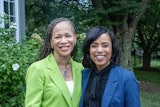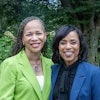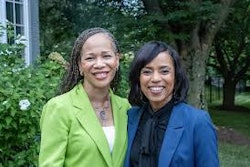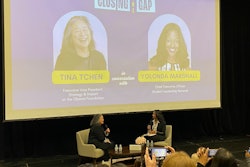Math was part of Dr. Grisselle Centeno’s life at an early age.
On long road trips, rather than playing games or drawing in coloring books, she would solve math problems to keep herself entertained.
Years later, that passion blossomed into a career.
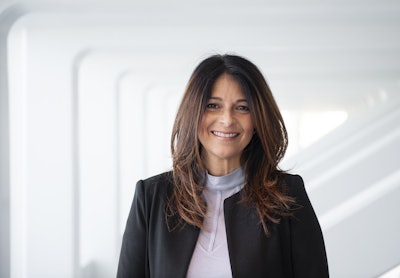 Dr. Grisselle Centeno
Dr. Grisselle Centeno“My career in STEM was a perfect fit because it kind of supplemented my creativity in trying to solve problems with models, theories and approaches that could help me transform my ideas into real solutions,” says Centeno, a professor in the Department of Data Science and Business Analytics and director of the Health Systems Engineering program at Florida Polytechnic University.
After internships with Lucent Technologies Inc. and AT&T, her first introduction to academia was at the University of South Florida.
As a professor in industrial and management systems engineering, Centeno was able to use the concepts she learned in college to “train the next generation.”
“I feel that as an educator, I am serving the students but I am also serving the community,” she says. “Because when we educate people, that translates to many other beneficial aspects for the community at large.”
Alongside her role as a professor, she also worked as an industrial engineering and data analytics consultant for Walt Disney World Resort.
Climbing her way up the tenure ladder, Centeno put an emphasis on research. Receiving funding from the National Science Foundation, the Florida Department of Transportation and the Office of Naval Research, much of her research focused on “mathematical modeling to support decision-making” and “capacity planning.”
Centeno’s work has been featured in Computers and Operations Research, Transportation Research Record, Annals of Operations Research and IEEE Transactions on Semiconductor Manufacturing.
“It is a privilege to be in academia,” she says. “We have this unique opportunity to come up with our own creative ways to do things. And if we can communicate them effectively, people will bet on us.”
As the field continues to evolve, one of Centeno’s biggest challenges has been to remain relevant in the classroom. Therefore, Centeno makes a conscious effort to stay involved with industry partners and projects to better prepare her students for today’s workforce.
“Technology is constantly changing,” she says. “The problems we had 20 years ago are certainly not the problems of the current generation. It is important for us as faculty, as educators, to engage in activities or research that can help us be relatable.”
After an 18-year tenure at the University of South Florida, Centeno transitioned to Florida Poly in 2019.
“Sometimes I say that STEM is like studying history,” she says. “I am almost teaching my students history because it is all the legacy that we have from those previous scientists, the things and the theories, that is the foundation.”
As the director of Florida Poly’s Health Systems Engineering program, she hopes to encourage more women to opt for STEM careers by developing a bridge between health care and engineering.
Currently, women represent 15–18% of the STEM workforce but 85% of the health care field, says Centeno.
“There are some studies actually that talk about how women are naturally more safety aware,” she says. “We are less of risk takers and health care is exactly that environment. So, women tend to do really well within health care.”
As part of the program, students learn how to use engineering methods and science to examine and increase efficiencies within health systems. The goal is to reduce errors, improve patient safety and increase access.
Due to its transdisciplinary nature, professors involved in the certificate program have expertise in various disciplines, including mechanical engineering, computer science, computer engineering and data science.
“The idea is to make women aware that you can work in health care but you do not have to be a nurse,” says Centeno. “You do not have to be an anesthesiologist. You can be an engineer. You can be a data scientist. You can be a data analyst and work for health care and be a contributor there. We are hoping to make that more and more clear to people.”
To combat gender misconceptions in STEM, young females should be exposed to examples and role models, she added.
“Aside from creating programs that are more inclined towards the strengths of women like health systems engineering, I think it is just really sharing our stories,” says Centeno. “Telling them, ‘Just give it a chance because this might really be something great for you.’”
This article originally appeared in the July 8, 2021 edition of Diverse. Read it here.
